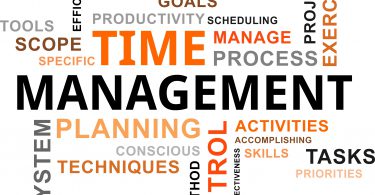With winter here and baseball in the United States slowing to a crawl, social media becomes a hotbed of baseball activity. People take to Twitter, Instagram, and just about every other platform to share their ideas on all topics baseball. Reading opinions on coaching, swing mechanics, and everything in-between, can be both interesting and extremely troubling. The sheer amount of information that is available, the range of opinions on the same topic, unfounded claims and trolls are enough to overwhelm and confuse any baseball mind, regardless of experience. Welcome to the digital age.
So how do you sort through all this information and figure out what to implement and retweet and what is no good? Thinking about this challenge, I am reminded of an article we published by Coach Andrew Bennett, “Teaching Your Player about Productive Listening.” This article speaks to the importance of being able to filter through information and decide what to apply to your game– a skill that is essential for today’s successful ballplayer. The article is a must read and sets you up nicely for the following tips.
Since you are likely to come across endless amounts of baseball information this winter, following these 5 suggestions can help you improve your “filter” and separate the best info from the rest!
- Don’t believe everything you read on the internet. No, seriously! Question what you are reading. Is the writer trying to sell you something? If they are, what is the evidence supporting their claim or product? It’s important to be able to recognize a sales pitch or a possible bait-and-switch situation where you get roped into something under deceiving or false pretenses. An example of this is a website that claims you can set up a free recruiting profile to share with college coaches, but once you set up the profile they tell you that you need to pay $XX.XX amount to have it available to coaches. Look for holes and look for ways to disprove what the author is arguing and do more research on the product or topic. If you can’t find any holes, you likely have something worth reading.
- How is the information presented? Does it come across as well-planned and educated, or does it sound like a rant? Many people rant and rave online just to get attention, but coherent arguments are more likely to be well thought out ideas that merit closer attention. If it can hold up as a logical argument and not just name calling, you may have something worthwhile.
- Does the information actually apply to your level of baseball? It’s great to know that Big League Joe tries to hit home runs every at bat, but is that approach applicable to your ability, skill set, and level of competition? If not, is there something useful you can take from it, like working to elevate the ball at a launch angle that would give you success? Think through the entire situation and take the positive that you can use.
- Is it something that will actually make you a better player or make your team win more games? Just because you can incorporate something into your game, it doesn’t mean you should!
- Consider the evidence presented. Is it anecdotal or backed by a body of work? Is it talking about an ideal situation or something realistic? Consider these questions and whether you or anyone else should take the recommendations.
Not only will these 5 tips help you sort out what information might be relevant to your game, but they will also help you learn critical thinking skills and become a better problem solver. Being coachable doesn’t mean taking things at face value, it means being an active participant in your growth and development as a player. This can mean questioning something, trying something, or even deciding that something is not for you. Online is a great place to practice these skills. The days of thoughtless “yes sir” coachability are gone. Be active in your development both on the field and online and work to filter out information that will help you get better!







